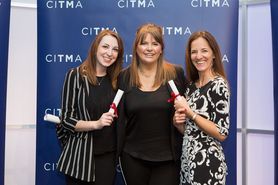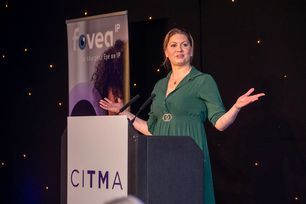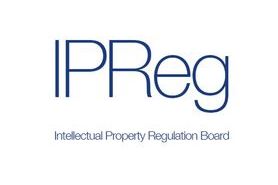Course correct
Our concise guide makes it simpler for firms and trainees to navigate the qualification choices.

Updated: August 2025
Qualification as a Chartered Trade Mark Attorney requires the successful completion of two postgraduate courses and at least two years of on‑the‑job training under the supervision of a qualified trade mark attorney or other suitably qualified mentor.
There are a number of options available to trainees for the first postgraduate course and, while this offers some choice and flexibility, it can be difficult for trainees and firms to know which option is most suited to their specific circumstances and requirements.
Some trainees and firms have also found that it is not easy to access all the relevant information needed to make an accurate comparison. This article aims to make this task easier.
To quickly recap, the path to becoming a Chartered Trade Mark Attorney can have a variety of starting points, including a law degree (although other degrees can be useful) or work as a paralegal.
The next step should then be to secure a trainee role in IP. This could be at a firm that specialises in IP, a full‑service law firm with an IP department or as part of a corporate in‑house IP department.
Once you are in post, firms will usually pay for trainees to undertake the formal qualifications required to become a Chartered Trade Mark Attorney.
The training route that will follow is not “one size fits all” and each trainee and firm will have different requirements and limitations.
It is important to note that you do not necessarily need a degree to become a trade mark attorney, you may instead be accepted on to a postgraduate course based on previous work experience and an acceptance interview.
Assessing your options
The good news for trainees and their firms is that there are several options available for the first postgraduate course and all of these provide an excellent track record of pass rates.
The bad news is that there are many other factors to take into account and, without having previous direct experience of each course, it can be difficult to know which option is most suited to a particular trainee or firm.
As a result, many firms opt to send their trainees on a particular course due to familiarity of content or proximity of the course to its office, rather than making an informed decision based on all the options available.
Some of the key factors to consider when making training decisions are:
- cost (including costs related to travel and accommodation);
- location, duration and structure of the course, including the number of days away from the office
- course content and syllabus and the suitability to the work the trainee is involved in;
- assessment style, including whether this is by coursework and/or exam;
- exemptions available based on previous academic qualifications; and
- previous trainees’ experience and feedback.
We’ll set out some information on each of the available options to assist with comparison and decision‑making.
The information provided has been updated and is correct as of 2024, but you should check the most up‑to‑date information with each course provider before signing up.
What next?

After completing the first postgraduate course, candidates must undertake the Professional Certificate in Trade Mark Practice at Nottingham Law School.
This course is specifically designed to build on the knowledge gained in the first year of study and to develop the professional skills needed to be a Chartered Trade Mark Attorney.
There is no obligation on students to commence the second postgraduate course straight after completing the first.
Some students find there is value in staying within their cohort and all moving on to the second course together, benefiting from the connections they have made and their shared study experience.
Other students have found that taking time to gain more experience in their role and expand their knowledge and network is the best move.
Everyone is different of course, and students should discuss their training and development plan with their mentor to decide when to begin the Nottingham course.
Once qualified, an attorney can apply to be entered onto the Register of Trade Mark Attorneys, maintained by IPReg, and will need to complete continuing professional development (CPD) and return a Continuing Competence Declaration each year to stay on the Register.
An attorney can also apply to become Chartered via election as an Ordinary member of CITMA.
End goal
The end goal, of course, will be to pass the required courses and to gain sufficient well‑rounded experience alongside the academic pathway.
Undertaking studies while working can be a challenging and intense period, particularly in the lead‑up to exams.
However, the combination of theory and practice is designed to ensure that, on reaching qualification, candidates have a grasp of the relevant legal knowledge and how to apply it.
As Aristotle put it: “What we have to learn, we learn by doing.” There really is no substitute for rolling up one’s sleeves and getting stuck into real‑world work.
A trainee will be mentored throughout the training journey by a qualified attorney who can advise on balancing client demands and deadlines with study and training time.
Get in touch
We are keen to support our Student members and offer a range of useful resources on the CITMA Student Members’ Hub at citma.org.uk/students. Students can also contact the CITMA Student Representative, April Parker, with any feedback, questions or concerns by email at [email protected]
I chose my course because…*
Brunel
“I initially chose Brunel as it was close to home in London. The fact that the full course was conducted online made it super accessible. I found the course extremely practical with useful working scenarios to help with an insight of working practices.
"The lecturers were absolutely great and fully supportive, and assistance was always at hand in relation to any concerns. It was tough but extremely engaging. Guest lecturers were all high‑profile individuals from the industry and relevant organisations.”
"Another benefit was that the course was one full day a week at the campus in Uxbridge, meaning I could easily commute there from central London without any residential weekends. The flexibility and scope of the course content was also an important factor, as I wanted to have a good understanding of copyright and designs, as well as a basic working knowledge of patents – and the course provided this.
"The fact that guest lecturers from private practice and industry were common was also a plus point; it was good to pick up practical tips from experienced people who had been working in IP for a number of years.”
Bournemouth
“I chose the Bournemouth course because it required less in-person attendance overall and only ran from January to May/June. I found this particularly beneficial as a disabled person.
"In addition, Bournemouth has fewer exams and more coursework, which may be preferable to some people. This was preferable for me as I struggle with the physical demands of exams, but this could also be beneficial for a variety of other reasons.”
“I chose the Bournemouth course as, while the patent exam and coursework definitely pushed me outside of my trade marks comfort zone, I knew it would be useful in the long term to have a broader understanding of the IP rights our clients may require.
"I also found the thorough design teaching a useful foundation for the Nottingham course, in which we are also examined on design rights. Another aspect was that the majority of the Bournemouth assessments were coursework essays rather than timed exams – I found this to be less stressful and easier to manage alongside my professional workload.
"I spent an estimated four to eight hours outside of lectures per week on independent study. This varied depending on the bits of homework set per week.”
Queen Mary
“I discussed which course to choose with our head of trade marks. As a former Queen Mary student herself, she gave me insight into her own experience, which was helpful in making my decision. But, ultimately, it came down to what worked best for me and my employer.
"I chose Queen Mary due to its excellent reputation and access to lecturers and practitioners who are at the very top of their field. I found the course to be incredibly informative and very enjoyable.
"There is a lot of reading on this course – I found I spent around eight to 10 hours each week on reading and study, and this significantly increased leading up to exam time.”
* Note: course specifications may have changed since these courses were completed. Check the most up-to‑date information with any course provider before signing up. CITMA cannot recommend or endorse any particular course or provider. The decision as to which is most suitable is entirely at the discretion of each trainee and firm.
Course by course: Academic year 1
|
|
Brunel University London, Intellectual Property Law Postgraduate Certificate |
Bournemouth University, Postgraduate Certificate Intellectual Property |
Queen Mary University of London, Trade Mark Law and Practice Postgraduate Certificate |
Queen Mary University of London, Intellectual Property Law Postgraduate Certificate |
|
General |
||||
|
Start date and duration
|
September (8 months) or January (12 months, including summer break) |
Early January to end May (5 months) |
Mid-September (9 months)- Including the exam periods in January and May |
Mid-September (5 months)- including the exam periods in January. |
|
Course structure |
Intensive online sessions on Wednesdays |
Residential teaching weekends from early February until April (Thursday pm to late Saturday pm) |
1-week intensive, followed by 1-2 days of lectures for 10-12 weeks including tutorials and review classes.
|
1-week intensive, followed by 3-4 days of lectures for 12 weeks including tutorials and review classes. |
|
Cost (based on 2024/25) |
£4,580 |
£5,634 |
£10,000 |
£10,000 |
|
Additional travel/accommodation costs |
N/A (online course) |
✓ for 3 x teaching weekends in Bournemouth for in-person students (for remote study students, the course is delivered completely online including any assessments and exams) |
✓ for trainees based outside of London |
✓ for trainees based outside of London |
|
Entry requirements |
Bachelor’s Honours degree (2:2) in any subject Time in practice will be considered
|
Bachelor’s Honours degree (2:2) in any subject Time in practice will be considered and an interview undertaken if not at degree level |
Applicants with a degree: 2:2 or above in any subject area Applicants without a Bachelors degree may apply if they fit the following criteria: |
Applicants with a degree: 2:2 or above in any subject area Applicants without a Bachelors degree may apply if they fit the following criteria: |
|
Approximate number of days out of office |
N/A (but see course structure section above) |
6 full days, 1 exam |
1-2 days a week during term time (September to December & January to March) |
3-4 days a week during term time (September to December) |
|
Course content includes trade marks, patents, designs and copyright |
Yes |
Yes |
Yes (Patent content is only covered in the foundational intellectual property lectures) |
Yes |
|
Unique to this course |
N/A |
International IP practice unit which focuses on practical application; guest speakers every Thursday during the 3 teaching weekends |
Induction activities over 2-3 days including an introduction to Critical Thinking and Legal Essay Writing & an intensive class on the fundamentals of IP. |
Induction activities over 2-3 days including an introduction to Critical Thinking and Legal Essay Writing & an intensive class on the fundamentals of IP. |
|
Delivery method |
||||
|
Location |
Online |
3 x in-person teaching weekends in Bournemouth with remote option also possible |
In person in London, at Lincoln’s Inn Fields, Charterhouse Square or West Smithfield; distance learning is not available, but all lectures will be recorded and available online |
In person in London, at Lincoln’s Inn Fields, Charterhouse Square or West Smithfield; distance learning is not available, but all lectures will be recorded and available online |
|
Lectures |
Yes |
Yes |
Yes |
Yes |
|
Group work |
Yes |
Yes |
Formative group essay |
Formative group essay |
|
Set tasks/work in between lectures |
Yes |
Yes |
Occasionally |
Occasionally |
|
Recommended time for independent study |
3–5 hours per week |
36 contact hours (during 3 teaching weekends) + approx. 12 hours per week for e-activities in between the teaching weekends |
13–14 hours per week |
42–43 hours per week |
|
Individual feedback provided? |
Yes |
Yes, for all assessments; for weekly e-activities, general feedback is provided; students are contacted individually if the teaching team identifies any concerns through the submission of e-activities |
Lectures end before time to allow for questions. Feedback is also provided during tutorials, formative group essays and during the revision lectures. |
Lectures end before time to allow for questions. Feedback is also provided during tutorials, formative group essays and during the revision lectures. |
|
General feedback |
Yes |
Yes |
Yes |
Yes |
|
Software used to access materials |
Blackbaud |
Brightspace/Turnitin |
Proprietary software (QM Plus) |
Proprietary software (QM Plus) |
|
Free access to databases such as Westlaw and Lexis? |
To be ascertained with the course provider |
Yes, plus free access to Practical Law guide, HeinOnline and access to practitioner-focused journals such as Managing Intellectual Property |
Yes, plus free access to all major trade mark textbooks and publications via the Queen Mary library |
Yes, plus free access to all major trade mark textbooks and publications via the Queen Mary library |
|
Assessment |
||||
|
Coursework |
1 x coursework, weighting 100%, for Managing Intellectual Property Law 1 x coursework (pass/fail) for the English Legal System 1 x coursework, weighting 100%, for Comparative and International Trade Mark Law |
1 x coursework for Copyright and Trade Marks (3,000 words) 1 x coursework for Patents and Designs (3,000 words) 1 x coursework (worth 40% of the International IP Practice module) (2,000 words) |
Yes- Formative group essay |
Yes- Formative group essay |
|
Exams |
1 x 2hr exam, unseen examinations weighting 100% for Patent Law and Practice 1 x 2hr exam, weighting 100%, for Trade Marks and Allied Rights 1 x 2hr exam, weighting 100%, for Copyright, Designs and Allied Rights
|
Yes x 1 (worth 60% of the International IP Practice module) |
Fundamentals of Law and Professional Ethics– multiple‑choice exam (30%); 2,500‑word essay (70%) Designs & Copyright Law- exam (100%) Trade Mark Law A – exam (100%) Trade Mark Law B – exam (100%)
|
Fundamentals of Law and Professional Ethics– multiple-choice exam (30%); 2,500-word essay (70%) Designs & Copyright Law – exam (100%) 1 x Trade Mark Law – exam (80%) 1 x Trade Mark Law – multiple choice exam (20%) 1 x Patent Law – exams (80%) 1 x Patent Law – multiple choice exam (20%) |
|
Open/closed book exams |
2 open book; 1 closed book |
Closed book |
Online exams |
Online exams |
|
Pass rate in the past 5 years |
98% |
99% |
99% |
99% |
With thanks to co-authors Eve Brown, Ervina Vasiljevic, Sharon Mackison and Gail Nicol. And thanks to Elise Cant for updating the article in 2025.



















